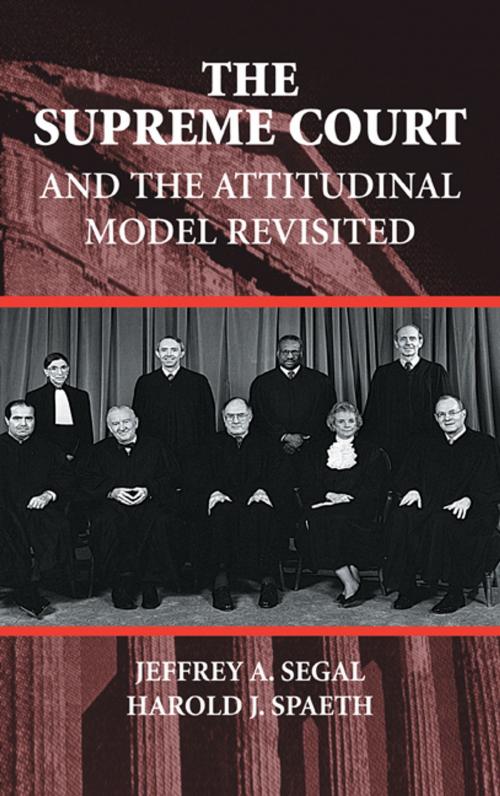The Supreme Court and the Attitudinal Model Revisited
Nonfiction, Social & Cultural Studies, Political Science, Government, Reference & Language, Reference| Author: | Jeffrey A. Segal, Harold J. Spaeth | ISBN: | 9781139930901 |
| Publisher: | Cambridge University Press | Publication: | September 16, 2002 |
| Imprint: | Cambridge University Press | Language: | English |
| Author: | Jeffrey A. Segal, Harold J. Spaeth |
| ISBN: | 9781139930901 |
| Publisher: | Cambridge University Press |
| Publication: | September 16, 2002 |
| Imprint: | Cambridge University Press |
| Language: | English |
This book, authored by two leading scholars of the Supreme Court and its policy making, systematically presents and validates the use of the attitudinal model to explain and predict Supreme Court decision making. In the process, it critiques the two major alternative models of Supreme Court decision making and their major variants: the legal and rational choice. Using the US Supreme Court Data Base, the justices' private papers, and other sources of information, the book analyzes the appointment process, certiorari, the decision on the merits, opinion assignments, and the formation of opinion coalitions. The book will be the definitive presentation of the attitudinal model as well as an authoritative critique of the legal and rational choice models. The book thoroughly reflects research done since the 1993 publication of its predecessor, as well as decisions and developments in the Supreme Court, including the momentous decision of Bush v. Gore.
This book, authored by two leading scholars of the Supreme Court and its policy making, systematically presents and validates the use of the attitudinal model to explain and predict Supreme Court decision making. In the process, it critiques the two major alternative models of Supreme Court decision making and their major variants: the legal and rational choice. Using the US Supreme Court Data Base, the justices' private papers, and other sources of information, the book analyzes the appointment process, certiorari, the decision on the merits, opinion assignments, and the formation of opinion coalitions. The book will be the definitive presentation of the attitudinal model as well as an authoritative critique of the legal and rational choice models. The book thoroughly reflects research done since the 1993 publication of its predecessor, as well as decisions and developments in the Supreme Court, including the momentous decision of Bush v. Gore.















